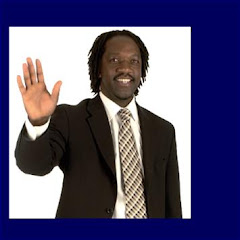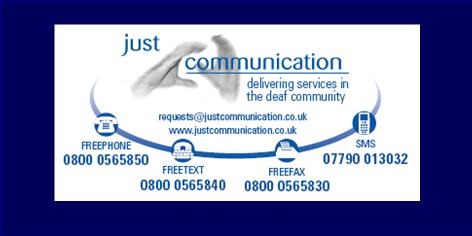For several years cochlear implants have offered some deaf people the chance to have a "sensation of sound". So why would some deaf teenagers choose not to have the implant even if they had the option? asks Lucy Wallis for BBC News (07/02/12).
The issue of cochlear implants and efforts to "cure" deafness is a very sensitive subject among the 19,600 deaf teenagers in the UK.
Indeed, many young deaf people are proud of deaf culture.
"I never hear anything, I'm fully deaf. With hearing aids all I could hear was beeps and I thought what's that? So I took them off. I never use them. What's the point?" says 19-year-old Sara Kendall.
Sara and her boyfriend Asher Woodman-Worrell live with Sara's mother and brother in Nottingham. Everyone in the family is profoundly deaf. As Sara and Asher cannot hear or speak, they live in a totally silent world.
"I'm very strongly in the deaf world," says Sara. "I'm passionate about it. I can't imagine myself outside of that world. No thanks. I'm happy where I am, because my parents brought me up deaf."
Even though it might improve her hearing, no one in Sara's family has ever considered being fitted with a cochlear implant - a surgically implanted electronic device that can improve hearing by stimulating the auditory nerve. Although an implant cannot restore hearing to normal it does give the sensation of sounds.
In the operation, a surgeon creates a small space on the surface of the skull where the electronics are placed. From here an electrode carries signals down into the inner ear.
Cochlear implants are not suitable for all deaf people and those considering the surgery have to undertake in-depth hearing, speech and language, educational and psychological assessments. Around 500 adults, aged between 15 and 59, receive cochlear implants in the UK each year.
But some deaf families do not agree with the procedure and are defiant about remaining in the deaf world. Sara and her family consider themselves to be very much part of the deaf community and proud of their deaf culture.
"I don't like to see children suffer because it's not right. I think cochlear implants look awful attached to the side of your head… I'd rather they look normal," says Julie Kendall, Sara's mother.
For Sara, however, it is not just a case of what the implant looks like, but how it would impact on her sense of identity.
"Personally [I] thank God I don't have a cochlear implant because I wouldn't know where I belong, in the deaf world or the hearing world," says Sara. "I know I'm in the deaf world, that's it, but with a cochlear I'd feel in between."
"It's offensive to think you can fix it," she suggests. "You can't fix it. If you're born deaf, you're deaf, that's it."
Asher also finds any suggestion that a cochlear implant might help intrusive.
"We find it offensive when people come in and say, 'oh we can change you into a hearing person', that's why cochlear implants are a really sensitive issue for us."
The term "big D-deaf" is sometimes used to refer to those who identify themselves as culturally deaf, and have a very strong deaf identity. Tyron Woolfe, deputy director of children and young people at the National Deaf Children's Society (NDCS) says deaf culture is extremely varied.
"Deaf teenagers are just like other young people, with diverse interests and social lives. Each deaf young person's experience of deaf culture is different," says Woolfe, "but we do know that being able to meet other deaf young people is very important to many of the deaf teenagers and children we work with."
The decision to not explore the option of a cochlear implant is a matter of personal choice says Woolfe.
"Every deaf child is different and it is important that there is a range of provision to meet the diverse needs and preferences of deaf children.
"A cochlear implant is just one option - it would not benefit all deaf children and young people. Suitability can depend on a child's level and type of deafness.
Nineteen-year-old Meghan Durno would like to hear more and maintain a connection with both the hearing and deaf world."Cochlear implants, whether unilateral or bilateral, don't make deaf children hearing children. They improve access to sound, but they don't replace hearing."
She has been profoundly deaf all her life and had her first hearing aid when she was three months old. She grew up in a deaf family and her mother as well as her sister and grandparents all inherited their deafness.
Meghan decided to have a cochlear implant fitted, but the operation was not without risk as the procedure is most successful when performed on the ear with the best hearing. After surgery, a patient waits four weeks before the implant can be switched on as the area needs to be given time to heal.
During this time Meghan started studying for a veterinary nursing degree at Edinburgh Napier University and had to rely purely on lip reading, which made it difficult for her to understand exactly what her lecturers were saying.
"When I went into the lecture theatre, I just switched off because the lady that was standing there started pacing up and down and talking and I couldn't understand what was being said, so I just looked at the notes," says Meghan.
"I do feel sad sometimes, not so much that I can't hear right now, but knowing that I'll never be able to hear what hearing people hear, but I don't get down about it, I know no different."
"With the implant, I'm able to hear little things I never knew existed," says Meghan. "Like when you rub your hands together, I never knew that made a sound."Once the implant was switched on, Meghan's brain took time to recognise new sounds, but she very quickly discovered noises that she has never heard before, like the piercing sound of a baby crying and the sound of birds singing.
"I was lying down one time and I heard a noise and I was like what's that and I realised it was my own breathing… I've amazed myself with what I can hear, and amazed a piece of machinery can help you hear."





